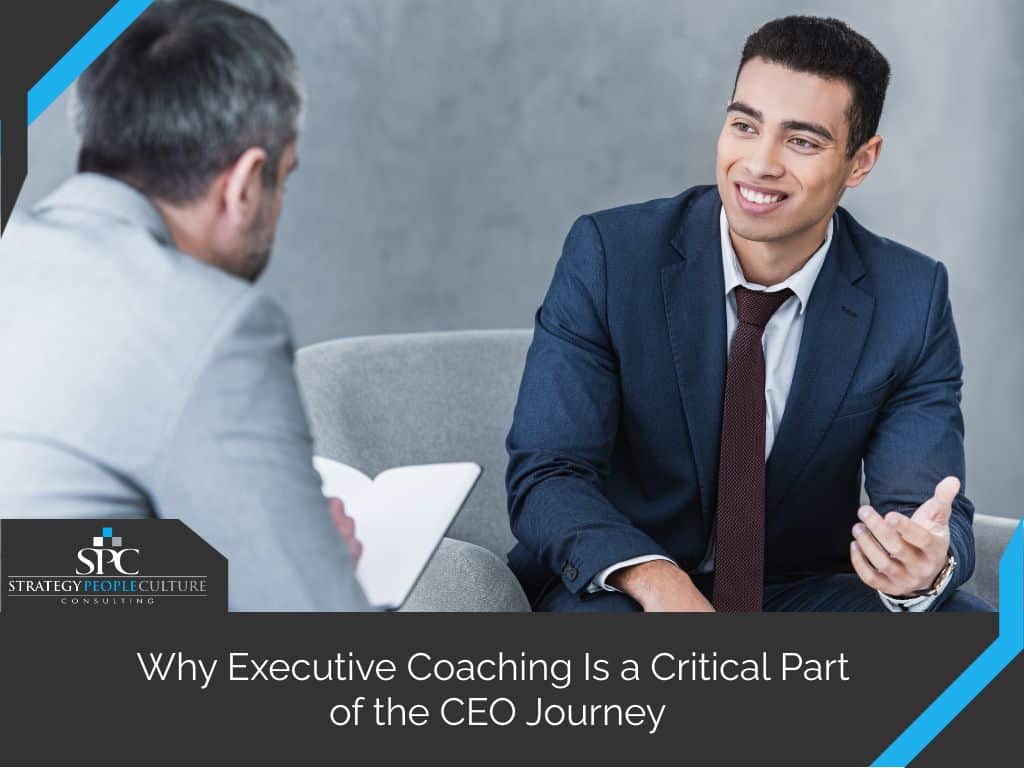Why Executive Coaching Is a Critical Part of the CEO Journey

Have you ever thought about seeking one-on-one executive coaching? It’s a more integral part of business strategy and leadership development than most people realize.
You might look at some of the top entrepreneurs of the 21st century and think, “Now that’s a self-made leader!” But with a little bit of digging into most leaders’ backgrounds, you’ll discover that they, too, needed a little help to accelerate their career as CEO, owner, or president.
Steve Jobs gave Mark Zuckerberg the push he needed to grow Facebook. Warren Buffett continuously discussed important matters with Bill Gates. Even Luke Skywalker turned to a small green Jedi for help becoming the man he was destined to be. We all need a little wisdom and training to succeed.
The question is: Who is advising, challenging, and discussing your leadership strategy with you?
No one is born a natural leader – and even if you have the innate ability to inspire and lead, there will be times you need a confidant and challenger to turn to.
That’s what executive or leadership coaching is for.
At Strategy People Culture, we have helped many businesses and entrepreneurs blossom into profitable, trail-blazing leaders. We’ve seen the value of continual leadership development, and we’ve defined four big reasons why coaching should be a part of any CEO’s growth.
1) It’s Lonely at the Top
After taking over from his predecessor Steve Jobs, Apple CEO Tim Cook has spoken candidly about the difficulties of being a world-recognized leader. “It’s sort of a lonely job,” he told The Washington Post in 2016.
Cook wasn’t the first CEO to openly admit to feeling isolated and alone at the top of a company, nor will he be the last. When you’re “above” so many others, you can find yourself looking for a counterpart that’s on your level – only to realize that there is no one else within your organization.
Now, this phenomenon is hardly limited to CEOs at large global companies. Being aware of this – and managing the effects – is a task that is just as important (maybe even more important) for leaders in smaller companies.
Executive coaching from an outside professional can help with this struggle. By connecting with a partner who will discuss and talk things out with you, you’ll find that work-life will feel a little less lonely.
One of the biggest benefits of turning to a coach instead of a coworker?
They have no skin in the game – other than supporting you as a coachee. They are free to openly discuss matters with you, and you are welcome to do the same without fear of repercussion within your company.
2) Everyone Needs to Be Challenged
Only about 18 percent of organizations report that their leaders are “very effective” at meeting business goals. Another 71 percent do not feel their leaders can actually lead their organization into the future.
And yet – how often do you really hear discussions about leadership failure? Who is going to tell the “boss” that they aren’t doing enough or leading effectively?
Not many people want to speak out against those in positions of power and authority. The average employee’s success within their company often depends on their ability to please and work with leaders – not to play devil’s advocate or challenge managers.
Questions and criticisms will likely be whispered behind closed doors, but as CEO, you will likely not be confronted by most employees with feedback to share, even when you think you have a truly open-door policy.
That’s where leadership coaching makes a big difference in companies of all shapes and sizes. When no one else will talk to you and say, “Hey, you could have done this better…,” your coach will.
Throughout life, we all need relationships that will challenge and support us to grow into better community members, workers, and leaders. An executive coach can be that impetus for self-improvement. They aren’t afraid to call their coachees out on their flaws and poor decisions – all for the sake of bettering leadership skills.
If you are relying solely on your own experience, gut, and information, your growth will be limited in seeing the bigger picture as a CEO. Executive coaching is an essential tool for both guidance and growth as a problem-solving, open-minded leader.
3) You’ll Learn to Think Critically
Executive coaching ensures that you’re training yourself to think critically, rather than over-relying on the input of others.
Your employees and coworkers might not be quick to openly criticize your performance, but many people will be quick to share their ideas and advice. CEOs have a lot of voices in their ears at any given time – often too many.
As William R. Klemm Ph.D. pointed out years ago,
“Some readers may think you have to be smart to think critically. But a corollary is that learning how to think critically makes you smart.
The assumption is that one can learn to think critically (that is, be smart). The assumption is correct.”
Critical thinking is not an inborn skill that accompanies leadership positions. Even the best leaders of our time have spent years working on their ability to think critically. For most, it’s a journey that should not be tackled alone, but with the help of someone who is well-versed in thinking patterns and decision making.
When you partner with the right executive coach, they will propel your career as a CEO forward by pushing you to think for yourself, as well as others. Your job is to guide your team – and your coach’s job is to develop your decision-making skills through healthy, but challenging, conversation.
4) Delegation Isn’t Always Easy
Lastly, leadership coaching will help you learn to leverage and delegate as a CEO.
Most of us haven’t been trained as royalty all of our lives, ready to doll out tasks and assign duties. It takes time to adjust to delegating, and professional coaching can help you do that.
A poor approach to delegation results in a lack of productivity, a decrease in profit, and in many cases, a lower level of trust between a leader and their employees. Your team wants to feel part of something. People hope to be a part of your inner team – and you need a game plan for sharing the load of your daily tasks and decisions.
If you’re struggling to delegate as an effective leader, turn to an executive coach for the solution. CEO coaching doesn’t just train you to interact with clients – it trains you to better function within your own team.
Finding the Right CEO Coach
When looking for an executive coach, you need a professional that has strong experience, a proven track record, and a personality that you can thrive with.
At Strategy People Culture, we’re all about the people in business. My name is Andrew Botwin, and I’ve been an executive coach for almost a decade, after a career as an executive for a large national partnership. My goal is to foster better awareness in leaders so they can more successfully lead their employees and their business.
For more than 25 years, I’ve served as a business leader, coach, workplace investigator, and trainer. I know what it takes to be a great leader, and I’m ready to help you get there.
To schedule a meeting, give SPC a call at 833-ROCK SPC. You can also send a message online.




